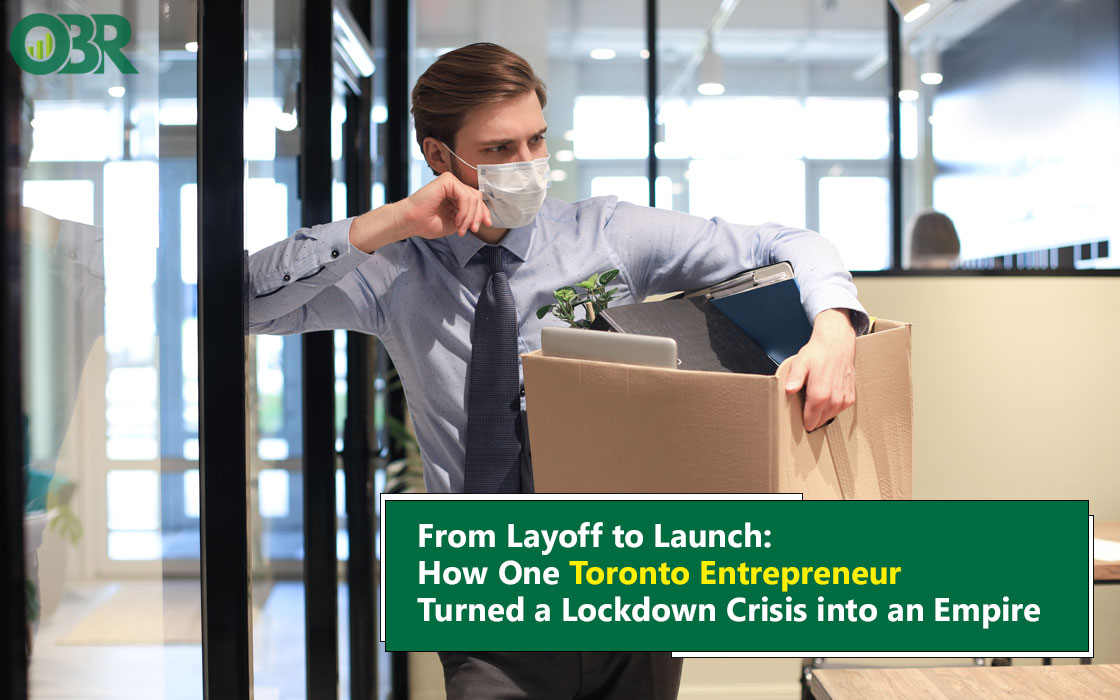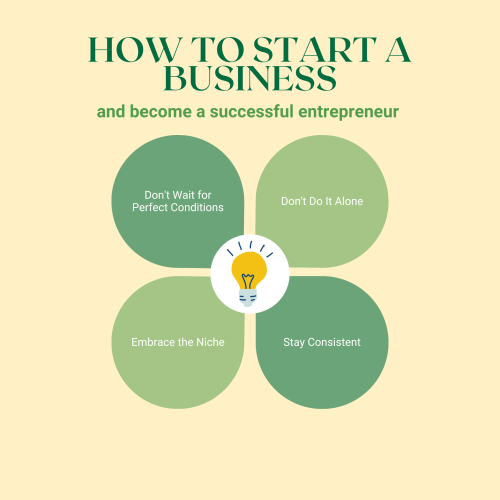From Layoff to Launch: How One Toronto Entrepreneur Turned a Lockdown Crisis into an Empire
It was a grey Tuesday in March 2020. You remember the ones. The air in Toronto felt heavy, not just with the humidity that usually rolls off Lake Ontario, but with a thick, suffocating uncertainty. The streets of the Financial District, usually a chaotic symphony of streetcars and suits, were eerily silent.
For Mark, a 34-year-old senior marketing executive, that silence was about to get a lot louder.
He was sitting at his kitchen table in his Liberty Village condo, staring at a Zoom screen that had just gone black. The meeting had lasted four minutes. After eight years of 60-hour weeks, missing birthdays, and skipping holidays to hit Q4 targets, it was over. “Restructuring,” they called it. “Unprecedented times.”
Mark closed his laptop. He was officially a statistic.
This isn’t just a story about losing a job. It’s a story about finding a purpose when the world shuts down. It’s about the grit required to pivot when you hit a wall, and how the right tools—specifically the support from Online Business Registry – can turn a bureaucratic nightmare into a streamlined launchpad.
If you are sitting there right now, wondering if it’s crazy to start something new in an uncertain economy, read on. Mark’s journey from a layoff slip to a CEO title might be exactly the push you need.
The Freefall: When the Paycheque Stops
For the first few weeks, Mark didn’t pivot. He panicked.
“I felt like I had lost my identity,” Mark recalls now, sipping an Americano on a patio on King West – a luxury he couldn’t afford three years ago. “In Toronto, so much of who we are is what we do. When you take that away, and you lock everyone inside their houses, you’re left with a lot of time to think. And mostly, I was thinking about how I was going to pay my mortgage.”
He sent out resume after resume. The responses were all the same: generic auto-replies or silence. The job market had frozen.
The Mental Toll of Uncertainty
The isolation of the lockdown amplified the rejection. Mark describes days where he wouldn’t change out of sweatpants, doom-scrolling through news about the economy crashing. He was burning through his savings, and the walls of his condo felt like they were closing in.
But necessity is the mother of invention, or in Mark’s case, the mother of action.
He realized that while big agencies were crumbling, small businesses were desperate. They needed to move online, and they needed to do it yesterday. They didn’t need a bloated agency retainer; they needed a lean, agile consultant who could set up Shopify stores and run Facebook ads.
Mark had the skills. He just didn’t have a company.
The Spark: A Business is Born
It started with a favour. A friend owned a local bakery that was dying because they had no delivery system. Mark set up their e-commerce site in a weekend. Then he did the same for a gym owner renting out equipment.
Word got around. Suddenly, Mark wasn’t “unemployed”; he was a freelancer in high demand. But he was messy. He was accepting e-transfers to his personal account, mixing business expenses with his grocery bills, and operating without any legal protection.
“I knew I had to get legitimate,” Mark says. “I needed to separate myself from the work. I needed to build a brand, not just be ‘Mark the marketing guy.'”
He decided to launch “NorthStrong Digital.” He had the logo, he had the clients, and he had the drive.
Then he hit the wall that stops thousands of entrepreneurs every year: Government Bureaucracy.
The Hurdle: The Maze of Red Tape
Mark remembers the night he tried to navigate the government websites alone.
“It was a nightmare,” he laughs. “I had fifteen tabs open. One site said I needed a NUANS report. Another said I needed Articles of Incorporation. I didn’t know the difference between a trade name and a corporation. I was terrified I’d make a mistake and get audited by the CRA before I even made my first dollar.”
For many creative minds, the administrative side of business is paralyzed. The fear of filling out the wrong form can be enough to halt a dream in its tracks. Mark almost gave up. He considered just staying a freelancer, flying under the radar.
But he wanted to build an asset. He wanted to incorporate in Ontario to protect his personal assets and gain tax advantages. He just didn’t want to spend $2,000 on a lawyer to file paperwork.
Why "Just Starting" Isn't Enough
Many entrepreneurs make the mistake of starting without structure. They think, “I’ll register later.” But in the corporate world of Toronto, credibility is currency. To land the bigger contracts, Mark needed an ‘Inc.’ behind his company name. He needed a proper Business Number. He needed GST/HST accounts.
He was stuck between the high cost of legal fees and the high confusion of DIY government sites.
The Solution: Online Business Registry
That’s when he found Online Business Registry.
“It was like the clouds parted,” Mark says. “I found a platform that spoke English, not ‘Legalese’.”
Mark’s experience is a testament to how modern tools have democratized entrepreneurship. He didn’t need a law degree; he just needed a partner who understood the landscape of ontario incorporation.
He logged onto the Online Business Registry platform. Instead of confusing government jargon, he found a simple, step-by-step interface.
How the Process Worked
- Name Search: He ran a search to ensure “NorthStrong Digital” was available.
- Registration: He filled out one single form.
- CRA Accounts: He selected the option to register for his Business Number and HST account simultaneously.
“It took me about 30 minutes,” Mark says, shaking his head in disbelief. “I spent more time picking a font for my logo than I did registering the actual legal entity of my business.”
Deep Dive: Why You Need to Incorporate Correctly
Mark’s story highlights a critical step in the journey. If you are looking to start a business in Ontario, doing it right from Day 1 saves you infinite headaches on Day 100.
The Safety Net of Incorporation
When Mark decided to incorporate a business in ontario, he wasn’t just doing paperwork; he was building a shield. During the volatile economy of the pandemic, this was crucial. If his business was sued, his personal condo in Liberty Village was safe. That peace of mind allowed him to take bigger risks and pitch bigger clients.
Credibility in a Crisis
Furthermore, when Mark approached mid-sized companies in the GTA, being an incorporated entity signaled stability. It showed he wasn’t a fly-by-night freelancer who might disappear when the lockdown lifted. He was a businessman.
From Paperwork to Profit: The Acceleration
With the administrative burden lifted by Online Business Registry, Mark’s energy shifted back to what he did best: growth.
He used the time he would have spent on the phone with the CRA to build a lead generation funnel. He used the money he saved on legal fees to hire a junior designer—another person who had been laid off.
“That was the best feeling,” Mark shares. “Sending an offer letter to someone else who was struggling. I couldn’t have done that if I was still just a sole proprietor mess.”
NorthStrong Digital grew rapidly. They specialized in helping brick-and-mortar Toronto businesses transition to the digital economy. They helped restaurants set up QR code menus, gyms launch video-on-demand portals, and retailers sync with Instagram Shopping.
Scaling Through the Chaos
By late 2021, while many were still waiting for things to go “back to normal,” Mark and his team were defining the “new normal.”
They moved out of his condo and into a shared workspace (once restrictions lifted). They hit six figures in revenue, then barely six months later, hit a quarter-million.
Mark’s Advice for Aspiring Entrepreneurs
We asked Mark what he would say to someone sitting at their kitchen table right now, staring at a layoff notice or just feeling stuck in their career.
1. Don’t Wait for Perfect Conditions
“If I had waited for the economy to stabilize, I’d still be waiting,” Mark says. “There is never a perfect time to start a business in ontario. The best time is when you have the hunger.”
2. Don’t Do It Alone
“You don’t need a co-founder, but you do need help. You need tools. Trying to navigate the legal system alone is a waste of your creative energy. Use services like Online Business Registry. Pay the small fee to get it done right so you can sleep at night.”
3. Embrace the Niche
“I didn’t try to service the whole world. I focused on Toronto businesses hurting during Covid. Find a specific problem and solve it aggressively.”
Conclusion: Your Success Story is Waiting
Today, NorthStrong Digital is a thriving agency with a team of eight. Mark works harder than he ever did in his corporate job, but he wakes up every morning with a sense of ownership that no HR department can take away.
The pandemic took a lot from us, but it also gave us a clean slate. It forced a reset. It proved that security is an illusion, but resilience is real.
Mark’s story proves that you don’t need millions of dollars or Silicon Valley connections. You need an idea, the courage to start, and the right support to handle the technical details.
If you are ready to take the leap, don’t let the paperwork scare you. Whether you need to register a sole proprietorship or incorporate in Ontario, the tools are there.
The Toronto skyline is full of glass towers, but the real heart of the city is in the thousands of small businesses started by people like Mark. People who got knocked down, looked at the rubble, and decided to build something new.
Are you next?
Ready to make it official? Visit Online Business Registry today to simplify your registration and get back to building your dream.





















